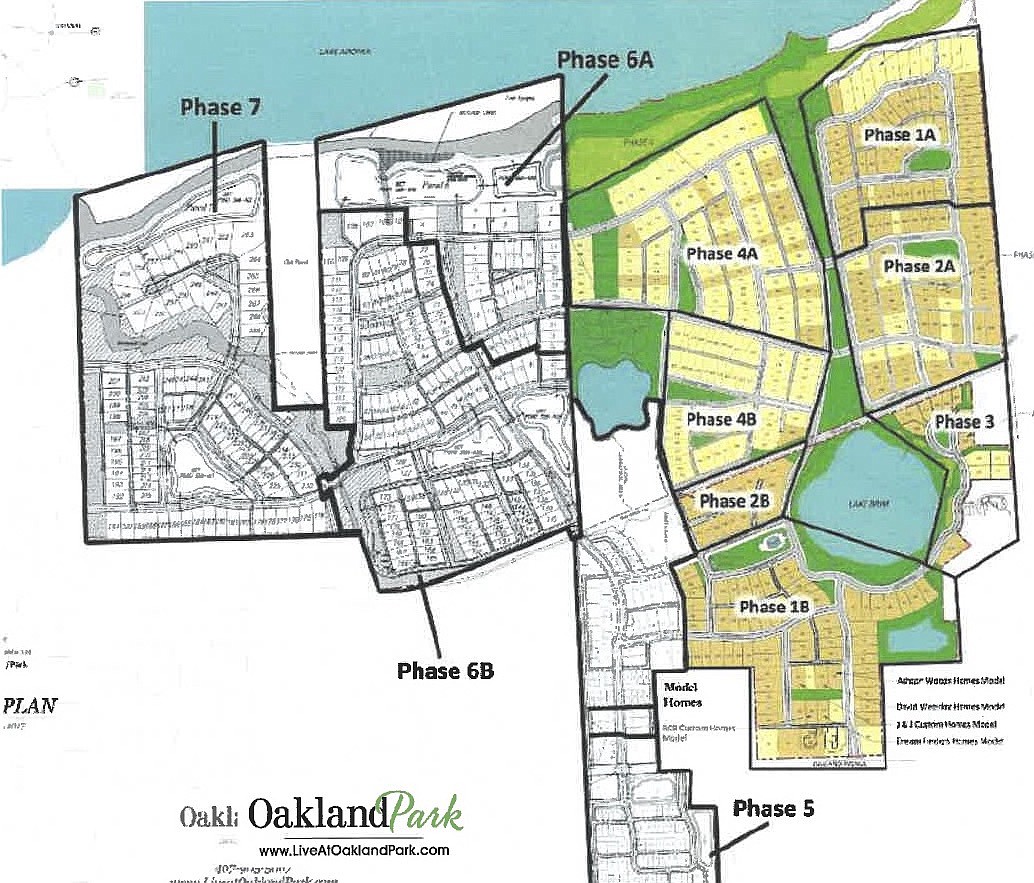- April 25, 2024
-
-
Loading

Loading

When the town of Oakland entered into an agreement in 2006 with Castle & Cooke — the original developers of the Oakland Park community — town officials were specific about what was and wasn’t allowed in the Oakland portion of the development. There were rules on trees and curbs, setbacks and fences, lot size and a host of other requirements.
Crescent Communities took over as Oakland Park’s developer in 2013, and Landeavor purchased it from Crescent in September.
After the purchase, Oakland Mayor Kathy Stark called on Paul Luck, the state division manager of Landeavor, to host several community meetings to update residents on the construction schedule, as well as the agreements, which still are in place.
Luck and Town Manager Steve Koontz facilitated a meeting March 11 in Oakland, with close to 50 people in attendance.
Many of the residents live in the Winters Landing subdivision, which will connect to Oakland Park’s final phase. Concerns of traffic, landscape buffering, historic trees, fencing and road paving were brought to Luck’s attention, and he addressed each one.
To alleviate traffic congestion along Oakland Avenue, Landeavor will pave Motamassek Road from Oakland Avenue to West Colonial Drive and Starr Street south to Oakland Avenue. This work will be done when the 169th building permit is pulled, or Jan. 1, 2023, whichever occurs first.
Luck said many of the trees removed from the neighborhood have been remnants of the old citrus groves. In Phase 5, which is the cleared land south of Oakland Avenue, more trees were saved than just those that were marked. The community was planned with open spaces and pocket parks to complement the green initiatives of Oakland Park.
“We abandoned a connector road and built a new one to save a heritage tree,” Luck said.
He said he has spent much time with longtime resident and citrusman Maury Boyd to learn Oakland’s history and find out what is important to the residents.
Residents whose homes along Macchi Avenue back up to the final phase of the project have long been anxious about the type of buffer that will separate them from Oakland Park.
An eight-foot privacy fence — white PVC with a decorative pattern at the top — will be installed and the Oakland Park Homeowners Association will maintain it, Luck said.
A big point of contention is the connector road between Winters Landing and Oakland Park. Winters Landing residents fear an increase in vehicle traffic in their quiet neighborhood. However, Luck said the good news is that by connecting the two subdivisions, a direct golf-cart path will be created so folks can ride into downtown Winter Garden for shopping and dining.
According to Luck, there are plans to add an establishment, such as a wine bar or restaurant, in Phase 5.
Luck said his company has spent months correcting unacceptable issues that the previous owner left behind. He will continue emailing a weekly developer’s update to homeowners.
The 258-acre Oakland Park is the first community of its kind, with properties in both Winter Garden and Oakland. It has nearly a mile of lakefront property, has onsite access to the West Orange Trail and is a certified green development.
About one-third of the homes will be in the town of Oakland.